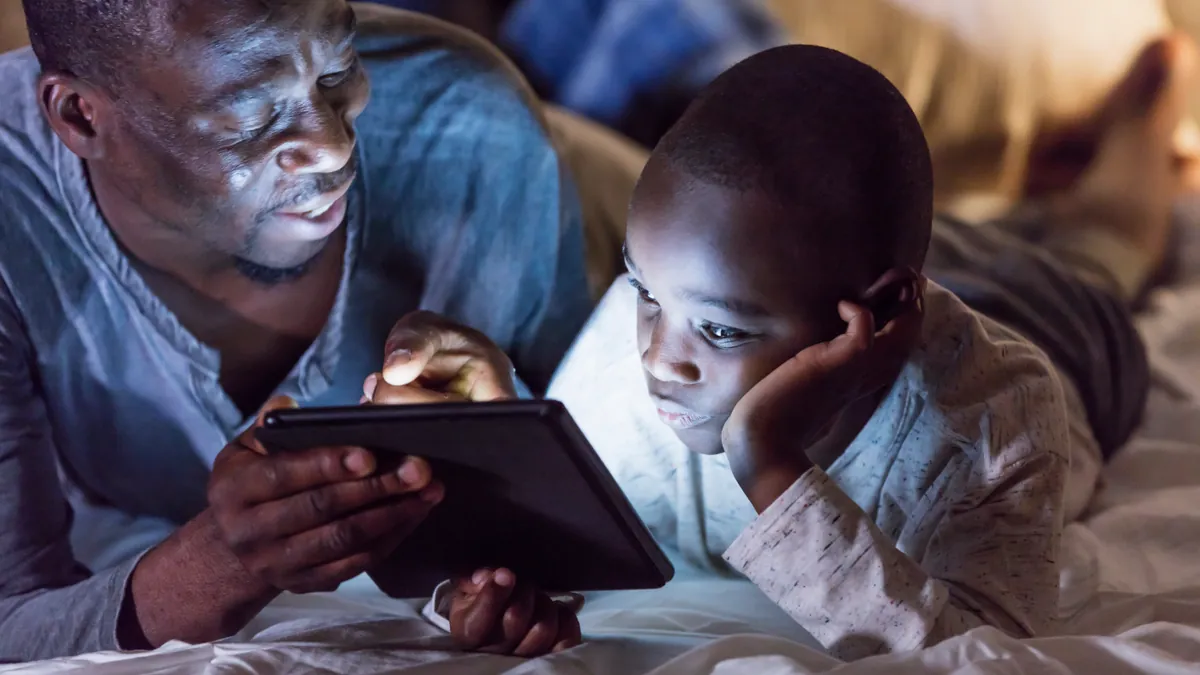Sweden Sets Strict Screen Time Limits for Children and Teens
Swedish health authorities introduce new guidelines limiting screen time for children and teenagers, citing concerns over sleep and addiction. The move sparks debate on digital media's impact on youth development.

Sweden's Public Health Agency has recently unveiled new screen time guidelines for children and teenagers, addressing growing concerns about the impact of digital devices on youth development. These recommendations come amid a global debate on the effects of smartphones, tablets, and televisions on young people's well-being.
Jakob Forssmed, Sweden's public health minister, expressed concern about the pervasive nature of screens in children's lives. He stated, "For too long, smartphones and other screens have been allowed to enter every aspect of our children's lives." This sentiment reflects a broader worry about screen addiction and its potential consequences on physical activity, social interactions, and sleep patterns.
The guidelines provide specific recommendations for different age groups:
- Toddlers (under 2 years): No screen time allowed
- Children aged 2-5: Maximum 1 hour per day
- Children aged 6-12: Maximum 2 hours per day
- Teenagers (13-18): Maximum 3 hours per day
These limits are significantly lower than current usage patterns. Forssmed noted that teenagers aged 13-16 spend an average of six and a half hours in front of screens outside school hours, highlighting the stark contrast between recommended and actual screen time.

The Swedish guidelines emphasize the importance of parental involvement and setting a good example. Parents are encouraged to explain their own phone usage to children and keep devices out of bedrooms to address what officials describe as a "sleep crisis" among teenagers.
It's worth noting that Sweden has been at the forefront of digital adoption. In 2003, it became the first country to recognize internet access as a basic human right, and by 2024, 98% of its population was online. This context makes the new guidelines particularly significant, as they represent a shift in approach from a digitally advanced nation.
However, the impact of screen time on children's development remains a subject of debate. A study by the Oxford Internet Institute, published in November 2023, found "no evidence" of screen time affecting brain development or mental well-being in children aged 9-12. This research, involving 12,000 US children, contradicts some of the concerns driving the Swedish guidelines.
"Zero tolerance bans on screen time are essentially impossible, even in your own home."
Sandberg, an adviser to Sweden's health authority, recommends a more nuanced approach. Instead of "screen abstinence," she suggests allowing children to use digital media under parental guidance.
The global nature of this issue is evident in actions taken by other countries. In the UK, for instance, the government has urged headteachers to ban mobile phones throughout the school day. Research from Ofcom found that about a quarter of 5-7-year-olds in the UK had their own smartphone, highlighting the prevalence of devices among young children.
As the debate continues, it's clear that finding a balance between digital engagement and healthy development remains a challenge for parents, educators, and policymakers worldwide. The Swedish guidelines represent one approach to this complex issue, but the conversation about screen time and its effects on children is far from over.


































